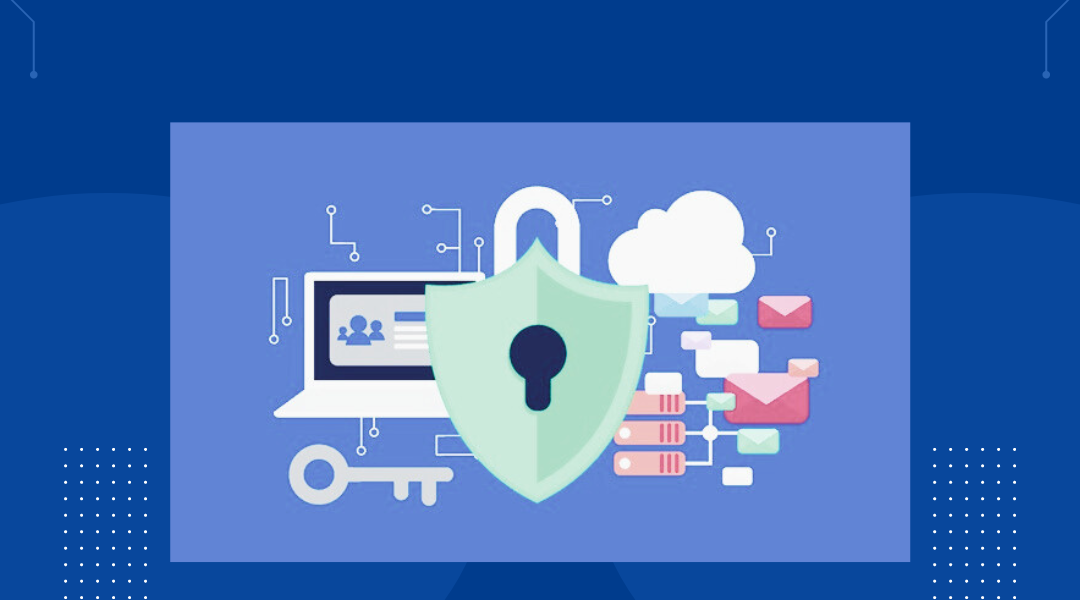
Website Security
In today’s digital landscape, website security has emerged as a critical concern for individuals and businesses alike. The increasing reliance on online platforms for everything from business transactions to personal communication makes securing your website an absolute necessity. This comprehensive article delves into the multifaceted world of website security, exploring its definition, importance, key features, advantages, and disadvantages in detail.
What is Website Security?
Website security encompasses the protective measures and protocols designed to defend websites from cyber threats. These threats can range from hacking and data breaches to malware and other malicious activities. Effective website security ensures the confidentiality, integrity, and availability of data exchanged between the website and its users. This includes preventing unauthorized access, protecting sensitive information, and maintaining the overall health of the web environment.
Importance of Website Security
These are the importance of website security:
1. Protection Against Cyber Attacks: Cyber attacks are becoming increasingly sophisticated, with hackers employing advanced techniques to infiltrate websites. Without robust security measures, websites are vulnerable to various forms of attacks, including SQL injection, cross-site scripting (XSS), and distributed denial-of-service (DDoS) attacks. These attacks can lead to data theft, website defacement, and operational disruptions.
2. Safeguarding User Data: Websites often handle sensitive information, such as personal details, credit card numbers, and login credentials. A security breach can result in the exposure of this data, leading to identity theft, financial loss, and a breach of user trust. Ensuring data protection through encryption, secure authentication, and data anonymization is crucial for maintaining user confidence.
3. Maintaining Business Reputation: A secure website helps uphold a business’s reputation. Security breaches can cause significant reputational damage, resulting in loss of customer trust, negative publicity, and potential legal consequences. A commitment to security demonstrates a business’s dedication to protecting its customers’ interests.
4. Ensuring Compliance: Various regulations, such as the General Data Protection Regulation (GDPR) in Europe, require websites to adhere to strict security standards. Non-compliance with these regulations can lead to hefty fines and legal actions. Adhering to regulatory requirements not only avoids penalties but also builds customer trust by demonstrating a commitment to data protection.
Key Features of Website Security
The features of website security are listed below:
1. SSL Certificates
Secure Sockets Layer (SSL) certificates encrypt the data transmitted between the user and the website. This encryption prevents unauthorized access and ensures data integrity. SSL certificates are crucial for protecting sensitive information, such as login credentials and payment details. Websites with SSL certificates display a padlock icon in the browser address bar, signaling to users that the connection is secure.
2. Firewalls
Firewalls act as a barrier between your website and potential threats. They filter incoming and outgoing traffic based on predetermined security rules, blocking malicious traffic while allowing legitimate users to access the site. Firewalls can be implemented at both the network level and the application level, providing comprehensive protection against various types of attacks.
3. Regular Software Updates
Keeping the website’s software, including its Content Management System (CMS), plugins, and themes, up-to-date is crucial. Updates often include patches for security vulnerabilities that could be exploited by attackers. Regular updates ensure that the website remains protected against the latest threats and vulnerabilities.
4. Strong Password Policies
Implementing strong password policies helps prevent unauthorized access to the website. Encourage users to create complex passwords that include a mix of letters, numbers, and special characters. Additionally, using multi-factor authentication (MFA) adds an extra layer of security by requiring users to provide multiple forms of verification.
5. Backup Solutions
Regularly backing up your website ensures that you can quickly restore it in case of a security breach or data loss. Off-site backups are particularly effective as they remain safe from attacks on your primary server. Automated backup solutions can streamline the process and ensure that backups are performed consistently.
6. Web Application Firewalls (WAF)
A Web Application Firewall (WAF) protects your website by filtering and monitoring HTTP traffic between a web application and the Internet. It helps protect against common threats such as SQL injection, XSS, and other OWASP top 10 vulnerabilities. WAFs can be hardware-based, software-based, or cloud-based, providing flexible deployment options.
7. Intrusion Detection and Prevention Systems (IDPS)
Intrusion Detection and Prevention Systems (IDPS) monitor network traffic for suspicious activity and potential threats. These systems can detect and respond to intrusions in real-time, preventing unauthorized access and mitigating damage. IDPS can be host-based or network-based, offering comprehensive security coverage.
8. Content Delivery Networks (CDN)
Content Delivery Networks (CDNs) improve website performance and security by distributing content across multiple servers worldwide. CDNs can help mitigate DDoS attacks by absorbing and dispersing malicious traffic, ensuring that the website remains accessible even during an attack.
Advantages of Website Security
The following are the advantages of website security;
1. Enhanced User Trust: Users are more likely to interact with a secure website. SSL certificates, for example, display a padlock icon in the browser, indicating a secure connection. This visual cue reassures users that their data is protected, fostering trust and encouraging engagement.
2. Improved SEO Rankings: Search engines, particularly Google, prioritize secure websites. Websites with SSL certificates often rank higher in search results, driving more organic traffic. Improved search rankings can lead to increased visibility and higher conversion rates.
3. Reduced Risk of Data Loss: Robust security measures protect against data breaches, ensuring that sensitive information remains secure. Data encryption, secure storage, and regular backups help minimize the risk of data loss and ensure business continuity.
4. Business Continuity: Security protocols, such as regular backups and updates, help ensure that your website remains operational even in the face of attacks. Maintaining business continuity is crucial for retaining customer trust and preventing financial losses.
5. Legal and Regulatory Compliance: Adhering to security standards and regulations helps businesses avoid legal penalties and fines. Compliance demonstrates a commitment to data protection and privacy, enhancing the business’s reputation and trustworthiness.
Disadvantages of Website Security
These are the disadvantages of website security:
1. Cost: Implementing comprehensive security measures can be expensive. Small businesses might find it challenging to allocate the necessary resources for advanced security solutions. Costs can include purchasing security software, hiring IT professionals, and investing in ongoing maintenance and monitoring.
2. Complexity: Setting up and maintaining security protocols requires technical expertise. Businesses without in-house IT support might need to hire external professionals, adding to the cost. Managing security can be complex, requiring continuous monitoring and updates to stay ahead of emerging threats.
3. Potential Performance Impact: Some security measures, such as encryption and firewalls, can affect website performance. For example, SSL encryption can slightly slow down data transmission, and firewalls can introduce latency. However, this impact is often minimal compared to the benefits of having a secure website. Optimizing security configurations can help mitigate performance issues.
4. Continuous Monitoring: Security is not a one-time setup but an ongoing process. Continuous monitoring and updating are necessary to stay ahead of emerging threats. This can be resource-intensive, requiring dedicated personnel and advanced tools to monitor, detect, and respond to security incidents.
5. User Experience Considerations: Some security measures, such as multi-factor authentication (MFA), can add steps to the user login process, potentially affecting the user experience. Balancing security with user convenience is crucial to ensure that security measures do not discourage users from engaging with the website.
Conclusion
Website security is an essential aspect of maintaining a trustworthy and functional online presence. The importance of protecting against cyber threats, safeguarding user data, and maintaining compliance with regulations cannot be overstated. While implementing security measures can be costly and complex, the advantages far outweigh the disadvantages.
By prioritizing website security, businesses can ensure a safe and reliable experience for their users, fostering trust and growth in the digital landscape. Ensuring your website is secure is not just about protecting data, it’s about building a solid foundation for your online presence. By understanding and implementing the key features of website security, you can safeguard your website against potential threats and provide a secure environment for your users. Investing in website security is an investment in your business’s future, ensuring its continued success and resilience in an increasingly digital world.


